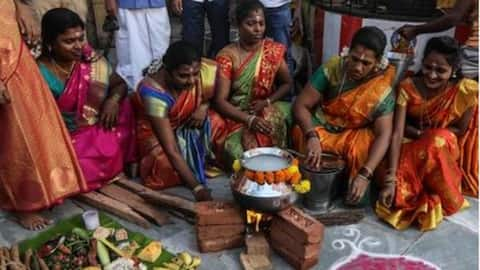Pongal 2025: Know the significance of each day
What's the story
Pongal, an important Indian festival, begins on January 14 this year. Mostly celebrated in Tamil Nadu and Kerala, the four-day festival marks the onset of the harvest season and pays tribute to the Sun God. Falling along with other harvest festivals such as Makar Sankranti and Bihu, Pongal also marks the end of winter. The festival is an integral part of Tamil culture and agriculture as it marks the Sun's transition into Capricorn, ushering in the Tamil month of Thai.
Daily rituals
Day 1: Bhogi Pongal
The first day of Pongal, Bhogi Pongal, is reserved for throwing away old things and welcoming the new. Homes are cleaned and bonfires are lit to celebrate, similar to the Lohri festival in Punjab. This is done to steer clear of the negative energy. To welcome wealth and good fortune, people make beautiful rangoli or kolam, go shopping for new outfits, and adorn their homes with bright colors.
Second
Day 2: Thai Pongal
The second day, Thai Pongal, is the most important as families prepare a special dish Pongal with freshly harvested rice, jaggery, and milk. This day includes worshiping Lord Surya (Sun God) and offering the traditional Sakkarai Pongal dish. In addition to this, families and relatives assemble together to express gratitude for a bountiful harvest.
Final days
Day 3: Mattu Pongal
The third day of Pongal, Mattu Pongal, is reserved for worshiping cattle for their contribution to agriculture. Farmers wash and decorate their cattle with garlands to thank them for their service in farming. The day traditionally starts with the bulls and cows being bathed and then exquisitely adorned. Later, they are ornamented with garlands on their horns. Touching the cattle's feet and doing aarti are ways that people show their respect.
Fourth
Day 4: Kaanum Pongal
The last day, Kaanum Pongal, is all about family reunions and celebratory feasts like Pongal Bhojanam prepared with harvested grains. Cultural performances are organized and people visit relatives' houses on this day. It marks the final day of the festival as families reunite and exchange warmth over delicious foods.
